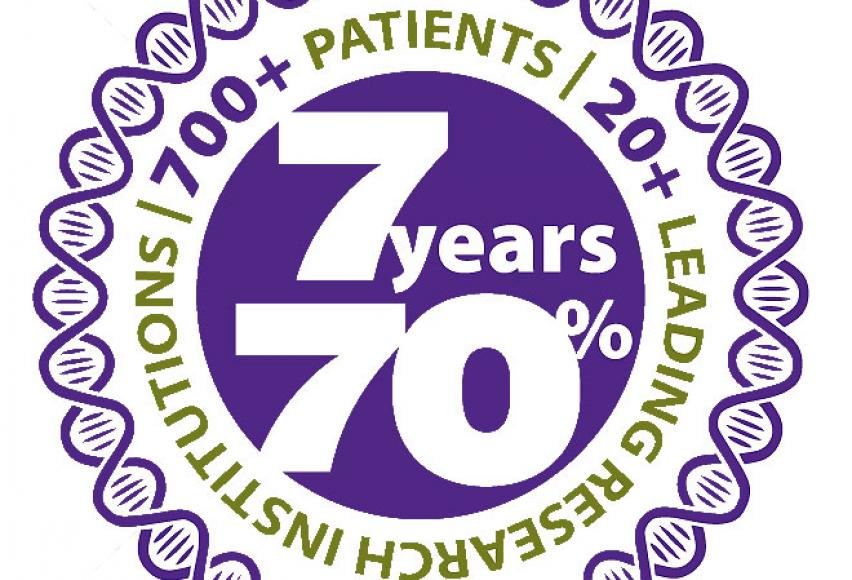What is the BFRB Precision Medicine Initiative?

Online test
Find out the severity of your symptoms with this free online test
Not many health professionals understand what Body-Focused Repetitive Behaviours (BFRB) such as hair pulling (trichotillomania) and skin picking (dermatillomania) are and what causes these behaviours or disorders. This is changing as medical advances are made and health professionals increase their understanding and insights into the underlying reasons for why some people compulsively pull out their hair or pick at their skins while other people don't feel such an urge to do so.
Because of this growing awareness of these types of compulsive behaviour, in 2014, the Trichtillomania Learning Center (TLC) Foundation for Body-Focused Repetitive Behaviours, with the help of its TLC scientific advisory board and collaborative partnerships started up the BFRB Precision Medicine Initiative to promote research and understanding around BFRBs.
What is the purpose of the Precision Medicine Initiative?
The TLC Foundation for BFRBs is a leading voice in advocacy over issues affecting people suffering from trichotillomania and dermatillomania. According to the initiative, in North America alone, over 10 million of the North American population, or 3% of the population live with these disorders. Furthermore, healthcare funding cuts means that there are not a great deal of funds available for research in the BFRB field, especially given that people with trichotillomania or dermatillomania do not have a lot of treatment options to look at. The premise behind this is the belief that it is time for better solutions to be created for people with these disorders and give them hope and a future, and let them know they are not alone.
The BFRB Initiative, through creating profiles of people who have trichotillomania or dermatillomania identified that many people who suffer from these disorders started engaging in these compulsive practices from a young age. Through this, the initiative recognised an opportunity to change the future for people battling to overcome their disorders through the provision of an innovative, holistic, comprehensive research and treatment module, known as Precision Medicine. Currently, according to research, current treatment success rates are only between 10% - 20%, and more needs to be down in this field. The BFRB Precision Medicine Initiative's approach promises a greater level of success and complete remission. The key to success with this approach is that the BFRB Initiative recognises that "complex diseases and disorders require very individualized therapies." As a result, Precision Medicine acknowledges that the genetic and biological indicators of one person's make up are vastly different to that of another person's make up.
Toward tailored treatment
This tailored treatment approach could make all the difference in ensuring that a person is able to successfully overcome their trichotillomania or dermatillomania tendencies. This approach could revolutionise the way healthcare professionals view and treat mental-related illnesses, transforming the landscape for people battling with these conditions. A collaboration driven initiative made possible by private investments, the BFRB Precision Medicine Initiative collaboration consists of leading scientists from over 20 participating research institutions in America. These institutions will analyse detailed behavioural profiles for patients with BFRB disorders over a period of three years, known as Phase 1.
During this phase, researchers will collect, analyse and study collected clinical and genetic data, including family history, neuro-images and a biological markers that will enable researchers to provide people with targeted treatment programmes specific to them. Researchers at imaging centres in Massachusetts General Hospital, the University of Chicago, and the University of California Los Angels will conduct blood tests and brain scans for all the people participating in the study, while researchers in Stanford University’s Department of Comparative Medicine will conduct complementary animal studies.
Once this phase has been completed, Phase 2, a four-year period will look at new treatments and clinical trials. The BFRB Precision Medicine Initiative aims to achieve successful BFRB treatment rates of 70 percent or higher within seven years, helping people with trichotillomania and dermatillomania to lead happier, more fulfilling lives.
A revolutionary approach to medicine
The BFRB Precision Medicine Initiative has emerged as the gold standard for medical research and will enable researchers and healthcare professionals to rapidly identify new BFRB treatments. Researchers have started to publicise their findings in research journals, adding to the body of knowledge on trichotillomania, dermatillomania and related BFRB disorders. As a result, the BFRB Precision Medicine Initiative is helping researchers to create new treatment strategies and draw up new research protocol to get much needed answers for helping people get to the stage where they no longer need to pull their hair out or pick at their skin.
Online test
Find out the severity of your symptoms with this free online test
Start your journey with SkinPick
Take control of your life and find freedom from skin picking through professional therapy and evidence-based behavioral techniques.
Start Now



